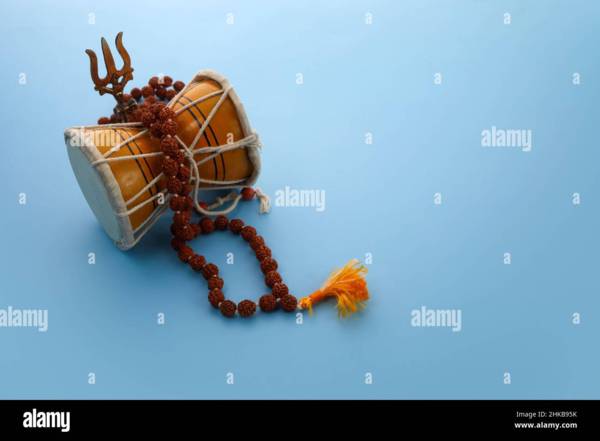 
 字體:小 中 大
字體:小 中 大 |
|
|
|
| 2022/10/17 20:38:43瀏覽614|回應0|推薦17 | |
|
"梵天" 就是 "Brahma" 指的即是"人類" 包括: "你" 和 "我" "梵天定律" 就是 "人為定律". 有多少個"梵天"(人 ), 就有多少個"梵天定律" : 每個人都有個腦子, 每個人腦中的想像都不一樣. 所謂的想像就是"主觀". 就是由我的角度來觀世界. 也是因為"主觀"的自我意識, 人類不斷地在 宗教, 政治, 國家, 種族, 等等...上面作自我劃分. 人類最大的野心就是想要改變自然, 控制自然, 讓自然成為自己所想要的樣子. 因此人類可以為所欲為, 可以呼風喚雨, 甚至可以終止老死, 達到永恆. "自然"其實是人類的母親, 人類從她而生, 依附她而存活, 而人類卻對待她似女兒.然而自然終究還是母親, 當人類的企圖心得不到他所想像的, 挫折感,沮喪,焦慮, 甚至害怕這些情緒就隨之而生.. 這裏所指的"自然" 大到~ 可以是 地球, 宇宙. 小至 ~人身, 或是一個細胞. 人的身體就可比作一個小宇宙, 這個小宇宙是依大宇宙的規律運轉而運轉. 人類想要強加改變控制自然的企圖心, 破壞了自然規律: 即是陰陽與五行的和諧. 因而身心疾病, 瘟疫, 天然災害不斷地衍生. 人若要身心健康必須從恢復自然平衡做起. . . . 由 "不平衡" 走向 "平衡" 由 "不通" 走向 "通" 由"緊抓不放" 到 "放下" "甚麼" 都是過程. 都是人生中很珍貴的體驗. 就似從"一無所有" 到 "富有" 沒有經過" "飢餓" 與 "貧窮", 不會了解"富足" 是甚麼? 沒有經歷病痛, 又哪能體會甚麼是健康? 一切都是人生的體驗, 有了這些體驗才拚構成一幅完整的人生. . . . "放下" 是因為手中(或者心裏)有緊抓著不放的東西. 若更本是空無一物, 那麼又談何"放下" 兩字 ? 其實說明白了, 一切的不平衡, 不通, 慾望, 痛苦, 糾結 .....都源自於 "放不下", 都源自於"我執" "放下了" 一切都通了, 不平衡也就平衡了. . . ~ 我們是否知道自已不斷地在訂立, 自己的一套 "梵天定律"? 我喜歡甚麼...我不喜歡甚麼...我討厭甚麼.. 愛甚麼... 恨甚麼... 想要甚麼... 想達到甚麼... Every human being has his own cerebrum, hence is subject to his own imagination of his self and the world around him, which is why every human being imagines himself to be special. Every human being is thus Brahma, creator of his own Brahmanda. Prakriti is common to all living creatures but Brahmanda is unique to a Brahma. As many Brahmas, as many imaginations, as many Brahmandas. 每個人都有自己的大腦,因此執著於自己和他周圍世界的想像,這就是為什麼每個人都認為自己很特別的原因。 因此,每個人都是梵天,是他自己的梵天定律的創造者。 自然是屬於所有生物, 但梵天定律卻為"梵天"所獨有。 有多少個梵天,就有多少想像,就有多少梵天定律。 Prakriti is the universal mother of all Brahmas. Brahmanda is, however, daughter of the particular Brahma who creates her. Nature does not consider any Brahma special. Every Brahma believes he is special in his own self-constructed subjective reality. "自然"是所有梵天的母親。然而"梵天定律"卻是有些特殊梵天所創造的女兒。自然不認為任何梵天有何特別。然而每個梵天在自我主觀的想像中相信自己是特別的。 Every human being compares his subjective reality with nature and finds nature inadequate. This dissatisfaction provides an opportunity to outgrow dependence on nautre, hence fear. But instead of looking inwards, Brahma look outwards. Rather than take control of his mind, he chooses to take conrol of nature. He proceeds to domesticate the world around him. Every Brahma creates Brahmanda for his own pleasure, indifferent to the impact it has on others. This self-indulgent act is descrived in narratives as Brahma pursuing his own daughter. Man chooses to pursue aham and dominate nature. This does not allay fear, it only amplifies fear. When the world is only Brahmanda not Prkriti, one is as deluded as one who is intoxicated. 每個人都將他的主觀現實與自然進行比較,並發現自然是不足的。 這種不滿提供了一個機會,可以擺脫對自然的依賴,從而擺脫恐懼。 但梵天不是向內看,而是向外看。 他沒有控制自己的思想,而是選擇控制自然。 他開始馴化他周圍的世界。 每個梵天為了自己的快樂而創造梵天定律,使它對他人的影響漠不關心。 這種自我放縱的行為在敘事中被描述為梵天追求自己的女兒。 人選擇追求自我想要主宰自然。 這並不能減輕恐懼,它只會放大恐懼。 當世間只有人類而沒有自然的時候,一個人就會像醉酒的人一樣被迷惑。 Brahmanda creates artificial value. In Prakriti, however, we are just another species of animal who need nourishment and security and who will eventually die. 人類 創造人為的價值。然而,在大自然裡, 我們只是另一種需要食物和安全的動物,最終會死去。 Realisation of this truth creates angst. Brahma wonders what is the point of existence then. He finds no answer and a sense of invalidation creeps in. It makes him restless and anxious. A life with imagination but no meaning is frightening. The human mind cannot accept this and so goes into denial. It seeks activities that fill the empty void created by time. It seeks to occupy the mind with meaningless activity so that it is distractdd from facing the emptiness of existence. That is why human beings get obsessed with games and recreational activities that enable time to pass. 意識到這個真相會產生焦慮。梵天想知道存在的意義是什麼。他找不到答案,一種無力感悄悄襲來。這讓他焦躁不安。有想像力但沒有意義的生活是可怕的。人類的思想無法接受這一點,因此否認這種可怕的感覺。它尋求填補時間創造的空白的活動。它試圖用無意義的活動佔據頭腦,從而分散面對存在的空虛。這就是為什麼人類會沉迷於讓時間流逝的遊戲和娛樂活動 Shiva recognises this and so holds a damaru in his hand. A damaru is a rattle-drum that is used to distract and train a monkey. The monkey here represents the mind which is restless and angst-ridden. Unable to find meaning, it yearns to be occupied. Shiva rattles the drum to comfor Brahmas mind. He hopes that, eventually, Brahma will realise that meaning will only come by moving towards atma rather than aham, pursuing yoga instead of bhoga, choosing Prakriti not Brahmanda. 濕婆認出了這一點,因此手裡拿著一個"達瑪魯"。達瑪魯是一種撥浪鼓,用於分散和訓練猴子的注意力。這裡的猴子代表不安和焦慮的心。找不到意義, 渴望被佔有。濕婆敲響鼓以安撫梵天的心靈。他希望,最終,梵天會意識到,只有走向 "靈魂, atma" 而不是 "自我, aham",追求"瑜伽"而不是"沉淪" ,選擇"自然定律"的大道 而不是 人類的"梵天定律",存在的意義才會到來。
Brahma divides subjective reality into two parts: what belongs to him and what does not belong to him. Property is thus created. It is humankinds greatest delusion through which humanity seeks to generate meaning and identity. 梵天將主觀現實分為兩部分:屬於他的和不屬於他的。 這樣就創建了財產的概念 這是人類最大的錯覺,人類試圖通過它產生意義和身份。 Animals have territory but humans create property. Territory is held on to by brute force and cunning; it cannot be inherited; it enables animals to survive. Property, on the other hand, is created by man-made rules; take away the rules and there is no property. Rules also govern relationships in culture, creating families to who property can be bequeathed. Neither wealth nor family is a natural phenomenon, both are cultural constructions, hence need to be codified and enforced through courts. 動物有領土,但人類創造財產。 領土被蠻力和狡猾所佔據; 它不能被繼承; 它使動物能夠生存。 另一方面,財產是由人為規則創造的。 拿走規則,就沒有財產。 規則還支配著文化中的關係,創造了可以將財產遺贈給哪個。 財富和贈予都不是自然現象,都是文化建構,因此需要通過法院進行編纂和強制執行。 ~讀過上面的文章, 現在我們對想像力, 應該有更清楚的認識了. 是嗎? 哈哈哈! 還是更搞不清楚了? 那麼就再讀一次吧! |
|
| ( 不分類|不分類 ) |



 .
.







